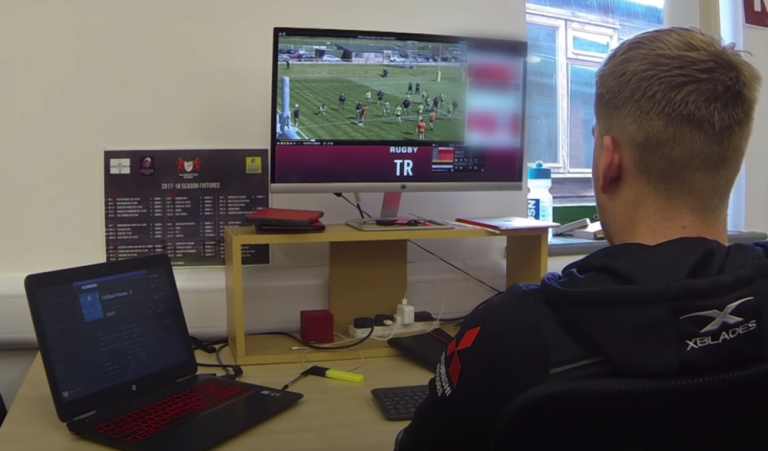Training for sports analyst jobs involves a combination of education, skills development, and hands-on experience. Here’s a guide to help you get started:
1. Education
- Bachelor’s Degree: Start by obtaining a degree in fields such as sports management, statistics, data science, economics, journalism, or communications. Some universities offer specialized programs in sports analytics.
- Sports Management or Journalism: If you’re interested in the media side, a degree in sports journalism or communications can help you develop the writing and broadcasting skills necessary for sports analysis.
- Mathematics and Statistics: Since sports analysis heavily involves data, a background in mathematics and statistics is essential. Some analysts pursue courses in data science, machine learning, and predictive analytics.
2. Learn Analytical Tools
- Data Analytics Software: Familiarize yourself with statistical tools and software such as Excel, R, Python, Tableau, or Power BI. Python, especially, is important for data manipulation and analysis with libraries like Pandas, NumPy, and Matplotlib.
- Sports-Specific Software: Learn to use tools that are specific to sports analytics, such as:
- STATS Perform: A popular sports data provider.
- Hudl: Used for video analysis in sports.
- Sportscode: Used for performance analysis.
- Machine Learning & Predictive Modeling: Understanding how to use machine learning models to predict outcomes or evaluate players is becoming increasingly important in sports analytics.
3. Develop Knowledge of the Sport(s)
- In-Depth Sport Knowledge: To be an effective analyst, you need a deep understanding of the sport(s) you wish to analyze. This includes knowledge of the rules, strategies, and key performance metrics used in the sport.
- Analyze Games: Watch games with a focus on key statistics, strategies, and trends. This will help you develop insights that are useful for both commentary and data analysis.
- Understand Key Metrics: Learn the key performance indicators (KPIs) for different sports. For example:
- Football: Passing yards, completion percentage, rushing yards, defensive efficiency, etc.
- Basketball: Points, assists, rebounds, player efficiency rating (PER).
- Baseball: Batting average, on-base percentage, slugging percentage, WAR (Wins Above Replacement).
4. Build Statistical & Research Skills
- Quantitative Skills: Strengthen your ability to analyze and interpret data. This includes working with large datasets, running statistical tests, and drawing conclusions from data trends.
- Trend Analysis: Being able to identify patterns in data over time (e.g., team performance, player metrics) is crucial.
- Historical Research: Being able to look at historical data and trends can provide valuable context for your analysis.
5. Gain Practical Experience
- Internships: Look for internships with sports teams, sports analytics firms, or sports media companies. This will give you hands-on experience and a network of professional contacts.
- Freelancing or Blogging: Start your own sports analysis blog or podcast, or write for existing sports websites. This helps build a portfolio of your work and shows initiative.
- Work with Local Teams: Volunteer to analyze performance for local teams or leagues. You could help with player analysis, game strategy, or team statistics.
- Fantasy Sports: Participating in fantasy sports leagues (especially data-driven ones) can help you develop a deeper understanding of player stats and trends, which is valuable for analysis.
6. Networking
- Join Industry Groups: Participate in sports analytics organizations and communities such as the Society for American Baseball Research (SABR), Sports Analytics World Series, and other sports-specific networks.
- Attend Conferences: Many conferences and workshops focus on sports analytics, like the MIT Sloan Sports Analytics Conference or the Saberseminar. These are excellent for learning and networking.
- LinkedIn: Use LinkedIn to connect with professionals in the field, attend webinars, and share your insights or work.
7. Stay Current
- Follow Sports Analytics News: Keep up-to-date with the latest trends in sports analytics, such as player tracking, injury analysis, and advanced metrics. Websites like FiveThirtyEight, FanGraphs, and Basketball Reference offer in-depth analysis and statistical insights.
- Books & Articles: Read books on sports analytics, such as “The Numbers Game: Why Everything You Know About Soccer Is Wrong” by Chris Anderson and David Sally, or “Baseball on the Border” by Peter Boettke, for sports analytics and economics insights.
- Advanced Courses: Consider taking specialized online courses or certifications in sports analytics. Websites like Coursera, edX, and Udacity offer courses in data science, machine learning, and sports analytics.
8. Develop Communication Skills
- Writing: A significant part of a sports analyst’s job involves writing articles, reports, and sometimes social media posts. Practice concise, engaging, and informative writing.
- Broadcasting: If you’re interested in the media side of sports analysis (e.g., TV commentary, radio, or podcasts), focus on improving your speaking and presentation skills. Taking public speaking or broadcasting courses can be very helpful.
- Visualizing Data: Communicate complex data in an easily digestible format, which could be charts, graphs, or videos. Learn the basics of data visualization for effective storytelling.
9. Pursue a Specialization
- As you gain experience, consider specializing in a particular area of sports analytics. For example:
- Player Analysis: Focusing on individual player performance metrics.
- Team Strategy: Analyzing tactics, formations, and team dynamics.
- Injury Analysis: Using data to predict and manage player injuries.
- Betting Analysis: Analyzing sports betting markets and using data to predict outcomes.
10. Create a Portfolio
- Showcase Your Work: Whether it’s through a blog, social media, or online portfolio, having a place where potential employers or collaborators can see your analytical skills, projects, and reports will help you stand out.
- Case Studies: Create case studies that showcase your skills in action. For example, analyze a team’s performance over a season or predict outcomes of upcoming games using statistical models.
By combining education, hands-on experience, and effective communication, you’ll be well on your way to securing a job as a sports analyst.



